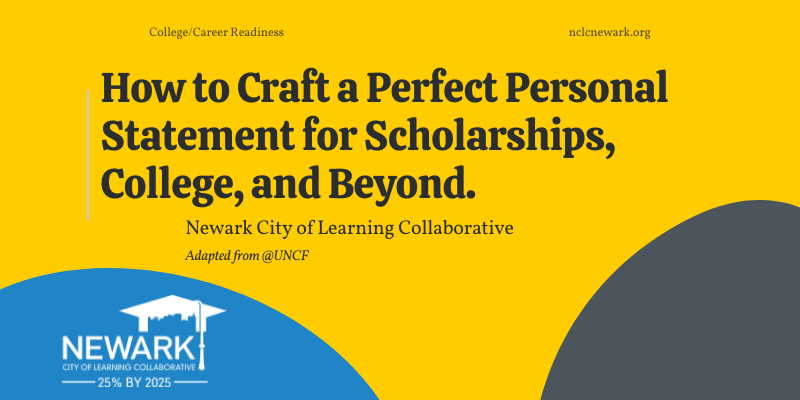
by Nasir Ismail | Feb 17, 2022 | Blog, Myth vs. Fact, Resources
Often after high school or the completion of a GED, former students might find themselves unsure about their career plans. The societal pressure to attend a four-year bachelor’s program, in a time where several workplace environments demand certain post-secondary credentials, can leave students lost when considering a career path. While colleges may provide you exposure to new ideas, paths, and schools of thought, if you believe your career won’t require a four-year degree, then pursue a credential in something else!
Finding What’s Right For You
Several programs exist for the development of your trade skills and hands-on work, but not many people take advantage of these. For example, if you love to cut or style hair, it would be wise to enroll in a barber program to obtain licensure, rather than a bachelor’s program in an unrelated field. That way, you can gain the credentials/license you’ll need to follow your passion and level-up your career! As you will see, the benefits and the reward of going to a two-year trade school program are real, applicable, and sure to leave you with a job! How come, though, people attach a stigma to this kind of education?
Misconceptions
A common myth states that trade school isn’t worth the time or money. While usually only two years long, and for a fraction of the cost of a bachelor’s degree, this claim can not be more wrong! Although, it is true that trade school may not be the right fit for everyone. Generally, professions in the trades require more manual, skilled labor, and can be physically demanding. Professions include carpentry, electrician, plumber, mason, painter, construction worker, welder, and more!
The Facts
Although, there is real value in two-year degrees, credentials, and certificates! The average entry-level NJ Trade School Graduate earns $57,000 after they complete their two-year degree program. This is around the same amount as entry-level Bachelor’s Degree holders earn after four years of school! New Jersey has over 120 trade schools to choose from throughout the state, depending on your location and career preferences, so it shouldn’t be a hassle to find the right program to get you started.
Why You Should Consider Trade School
Trade schools have the unique ability to teach you hands-on, real-world, immediately-applicable skills that will get you employed the second you start looking for work! So for a fraction of the cost, and for half the time that it takes to get a bachelor’s degree, Trade school offers several amazing, competitive benefits.

by Nasir Ismail | Feb 15, 2022 | Blog, Resources
In general, writing about yourself can be a bit difficult. Trying to persuade your audience into believing you’re the best candidate for a position might seem especially daunting. Keeping just a few pointers in mind, learn how you can breeze through your personal statement to convince any reader why you’re the right candidate for the scholarship, job, or admission of your preference!
Choosing a Topic
Like any writing task, the most common part during which people find themselves stuck is simply when deciding on what to write about. To make it easier, some great topics to write about include: Career interests, Overcoming challenges, Community Service, Leadership, and Perseverance.
Use these to inspire how you decide to tell your story. Honesty is compelling. Before choosing a topic, ask yourself the question, “why do I deserve this,” and be sincere in your response. It’s all about how you present yourself.
Questions to Answer While Writing Your Essay
The reader of your essay wants to know why you want to pursue your studies in the major, career, or field of your choice. Questions to answer include: What have been your life’s biggest inspirations and influences thus far? How do these affect the way you see the world? When did you learn about your passion, and what experience do you have with it, if any? What personal qualities about you will improve your chances of success in your anticipated career, field, or major? For any example, always try to offer proof, and apply how your experience relates not only to the outside world, but towards your academic interests as well. Admissions counselors want to make sure that you really want to go to their school.
Telling Your Story
Here are some general guidelines to follow as a framework for your essay:
- Explain what this opportunity means to you.
- Express your interest and motivation overtly.
- Describe how you spend your free time, your hobbies, and your achievements.
- Identify your long-term goals (personal, educational, career).
- Predict how your education will align with your future goals in great detail.
- Make sure your career goals align with the industry you want to work in.
Proofreading
Have a few sets of eyes read over your essay, and make sure that it is coherent, cohesive, and free of any grammatical errors.
Representing yourself through your writing is one of the most important skills that a person can utilize and leverage to make the most of their opportunities. Following these four steps, you can elevate your personal statement to the next level! These strategies will help you ensure that your value never goes overlooked!
Adapted from United Negro College Fund
For additional resources, please visit: www.uncf.org/scholarships

by Nasir Ismail | Feb 10, 2022 | Blog, Myth vs. Fact, Resources
Got some bad grades from early on in high school? Worried that they might affect your chances of getting into college? While grades certainly reflect some aspects of your capability as a student, they’re not all that matters. Some people might have strengths in areas others will have weaknesses. It’s really important to know your own strengths and use them to your best advantage.
People stress about grades, but truthfully, if you are not the strongest student, there are still so many qualities that a college admissions office will see in you.
Myths
A common misconception is that if your grades are not where you want them to be, you won’t be accepted into any college! People might have told you things like:
“If your grades suffer at the start of high school, it will ruin your chances of getting into college,” or “your grades from 9th grade til 11th grade will determine your college acceptance.” Sometimes they will go so far as to say “you need perfect grades to get into college.”
It’s tough to know what to expect from college before having been there. Claims like the one mentioned above can’t be further from the truth! Such claims only help to discourage people from pursuing their dreams!
Admissions offices understand the challenges that students may face with adapting to harder courses each year. Although, these counselors also recognize and really value progress.
The Facts
Improvement Matters: The fact of the matter is: admissions counselors look for upward trends and improvements over the course of your high school career. If you show improvement throughout the course of your high school career, then your chances of getting into college are already competitive! Supplement that with some average to above-average test scores for some extra leverage, and you will be well on your way.
Build Leadership Skills: Although, don’t be alarmed! Consideration is not only limited to tests and grades! Admissions counselors consider and weigh what kind of person you are, your lifestyle, the activities in which you participate, your honors, and your achievements. These can often be more telling than a student transcript. And if a teacher with whom you share a good relationship can attest to this in a Letter of Recommendation, that will only boost your odds even more.
So, Do Grades Matter?
The bottom line: grades do have weight, but they are not a golden ticket to college. Not everyone realizes the importance of education early in high school. Not realizing this can make your GPA suffer, but that’s not a problem as long as you show consistent improvement afterward.
That being said, being a good candidate for college or university is less about your actual GPA than it is about your improvement and development of skills over time.
Colleges want to see that you want to go; that you are fully motivated. If you have good grades, then that’s great! Now it could be time to focus on an extracurricular activity. If your grades are not up to college standards, you still have time to make them better. Furthermore, you still have time to develop your skills to match those of someone who really wants to succeed in higher education.
Always remember, college is for the benefit of no one other than yourself. So no matter what kinds of grades you may have had, if they reflect an upward trend, and if you put some genuine effort into developing your personality through sports, clubs, or other extracurricular, documentable activities, then you can count on yourself to propel you to the next level.



